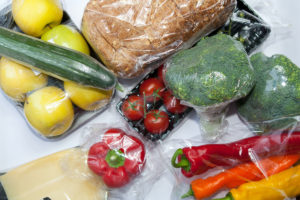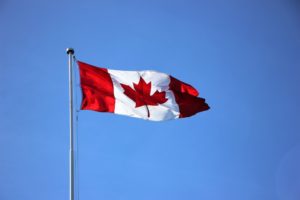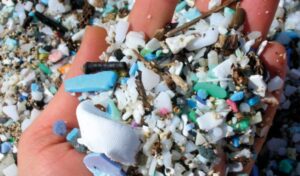Canadian plastics action plan developed in Halifax short on details
HALIFAX — Canada’s environment ministers have agreed on a plan to reduce plastic waste across the country, a plan that’s long on strategy and short on detail.
Full Article
By: Francis Campbell
The action plan laid out measures to keep plastics in the economy and out of the environment but it lacked firm reduction goals and timelines and any explanation of how plastic manufacturers might be forced to accept extended responsibility for their products.
“For the first time ever, one of the measures that was agreed to is that we need to hold producers responsible for the plastics that they produce,” Catherine McKenna, federal environment and climate change minister, said at the completion of the Halifax conference.
“It’s called extended producer responsibility. The producers of plastic need to pay the full cost. Right now the costs of recycling are borne by cities and municipalities largely and it’s a heavy burden and we are only getting nine per cent of our plastics recycled. This is all about how do we take measures that are going to make a real difference. Definitely, producers’ responsibility is a big deal.”
The plan
The action plan outlines a roadmap to address single-use and disposable plastics, performance requirements and standards, incentives that support a circular economy, infrastructure and innovation investments, and guidelines and tools to green government procurement practices.
Still, the provinces are provided discretion on how to make the plan work.
“Our goal always is to work with the provinces and hopefully they will step up,” McKenna said, answering a limited number of questions by the main entrance of the Halifax Convention Centre before being whisked away to the airport and skipping the main ministers’ news conference.
“Whether it’s tackling climate change or plastic pollution, the federal government certainly can’t do it alone and plastic pollution doesn’t know any borders. We hope that they (provinces) do step up. That’s part of this action plan and if they don’t we will look at other alternatives. The best thing is that everyone recognizes that Canadians expect action, that Canadians are horrified by pictures of the bellies of whales full of plastics and that we can all do better. We also have a huge economic opportunity to capture the value of recycled plastics.”
Some of the ministers at the news conference recoiled at the idea of the federal government dictating what the provinces should do.
Dustin Douglas, environment minister for Saskatchewan, said flexibility is imperative. He pointed to a deposit-refund beverage container program that employs a large number of people in 70 communities in his province.
“It employs a large number of people with disabilities,” Douglas said. “That is a well-regarded, well-received and very successful program in terms of return rates of beverage containers. That’s a very popular program. If the federal government or the … ministers decided that extended producer responsibility is required for recycling programs, I would have a big problem with that and so would the people of Saskatchewan.
“While we are trying to achieve the same goal, provinces need the flexibility to determine which programs and which models work best for them.”
Jeff Carr, environment minister in New Brunswick, agreed.
“Therein lies the problem of the federal government meddling in the business of the provinces,” Carr said. “The carbon tax is one example of that.”
Gordon Wilson, Nova Scotia environment minister and conference host, said an estimated 10,000 tonnes of plastic enter our oceans and waterways every year.
“It’s breaking down and entering into the food chain. We need to take action. We are taking action.”
The strategy is the first phase of a plastic waste plan but Wilson could not provide firm timelines on when the actions would be rolled out and couldn’t measure the effect the plan could have in improving on the more than 90 per cent of plastics that are not recycled across the country.
McKenna said an outright ban might not be the way to go in some cases.
“At the federal level we have said that we need to look at banning certain single-use plastics,” she said, pointing to straws and cups.
“When we have affordable alternatives and there is not an accessibility issue, we should be looking at bans. We are advancing the science on that. We are looking at what is the best way, is it a ban, is it setting targets for recycling. We’re moving forward as fast as we can. We said that it will happen by 2021.”
Phase two
The second phase of the action plan is to be developed for consideration at the ministers’ 2020 meeting in Saskatchewan. That phase will focus on preventing plastic pollution in oceans, inland lakes and waterways, including the Great Lakes, advancing science to monitor the impacts of plastics pollution within the environment, building consumer awareness, launching cleanups, and taking global action.
The ministers also discussed the various strategies that provinces, territories and the federal government are taking to tackle climate change. They received a presentation on Canada’s Climate Change Report, highlighting how climate has changed and changes that can be expected in the future.
They also discussed how natural infrastructure can assist communities to adapt to climate change and the opportunities to promote and implement natural infrastructure in Canada to help store carbon and build resilience to the changing climate. They exchanged information on the actions each provincial government is taking to mitigate the effects of climate change.



